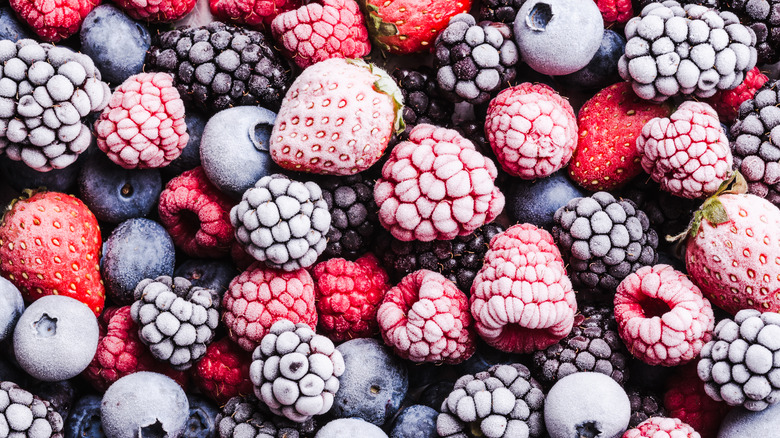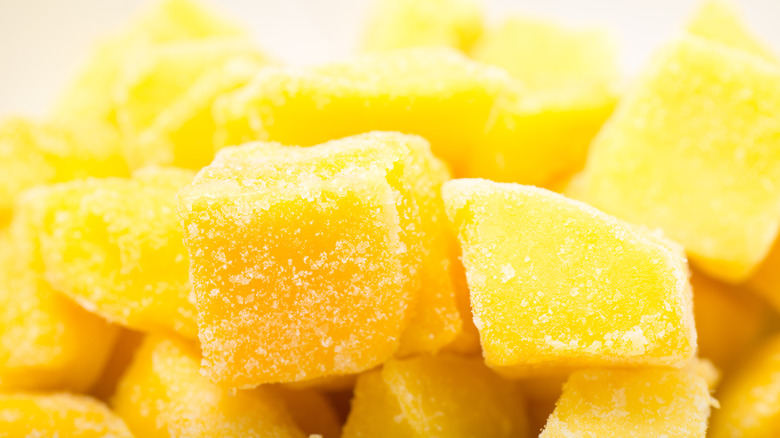Is Frozen Fruit Really As Nutritious As Fresh Fruit?
Buying fresh berries in the summer is great. They're juicy, vibrant, plump, and pretty much everywhere. But when you're craving the same berries in the winter months when they're not in season, frozen options can be a savior.
Plus, frozen fruits have a shelf life that's far longer than that of fresh fruits. While the convenience and ample supply of frozen fruits all through the year are an obvious bonus, the fact that fruits are frozen can be a cause of concern given the notorious rep that often follows frozen foods in the matter of nutritional value. But when it comes to frozen fruit, that's not necessarily the case.
According to Amy Shapiro, MS, RD, CDN, founder of Real Nutrition, frozen fruits are just as nutritious as fresh fruits. Contrary to what you might think, frozen fruits can sometimes be even better than their fresh counterparts, nutrition-wise. Shapiro tells Mashed that after harvesting, fresh fruits continue to ripen right until you eat them. As the fruits ripen, they continue to lose the vitamins, minerals, and nutrients that make fruits so healthy. Per Healthline, fresh fruits are harvested anytime between three days to several weeks before you eat them. And some fruits, such as apples and pears, can be as much as a year old when you buy them. That's not to say they're not good for you — but it does mean frozen fruits shouldn't get a bad rap.
Frozen fruits can be more nutritious
Amy Shapiro, MS, RD, CDN, says that frozen fruits can be a healthier option than fresh fruits because they're usually frozen soon after they are harvested. That means they lock in all the nutrients that the fruits would have at the peak of their ripeness. Health further reports that research conducted by Leatherhead Food Research and the University of Chester found that frozen fruits and veggies contained more nutrients than their fresh counterparts. In some cases, frozen fruits were found to have higher levels of antioxidants like polyphenols when compared with fresh ones.
Because freezing fruits automatically acts as a method of preservation, another advantage most frozen fruits have is that they tend to be free of additives and added sugars. Per Healthline, when fresh fruits are harvested and need protection from the damage that transportation to markets can cause, manufacturers tend to use chemicals to prevent them from spoiling. Since that is not a worry when it comes to frozen fruits, they tend to be chemical-free.
Regardless, Shapiro does warn that some frozen fruits may still carry added sugar. If that's something you're concerned about, it's best to glance at the ingredient list before buying a bag.

